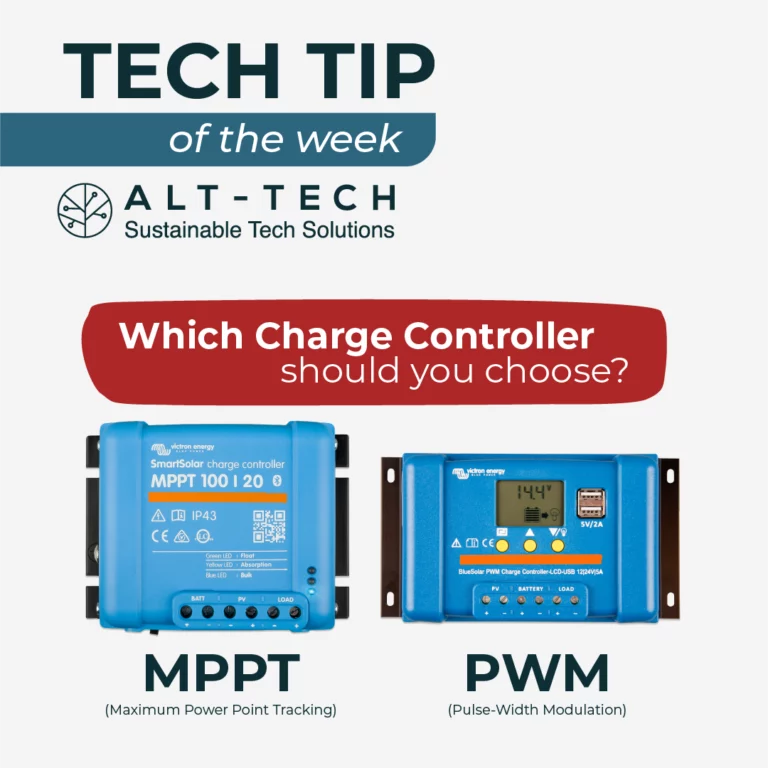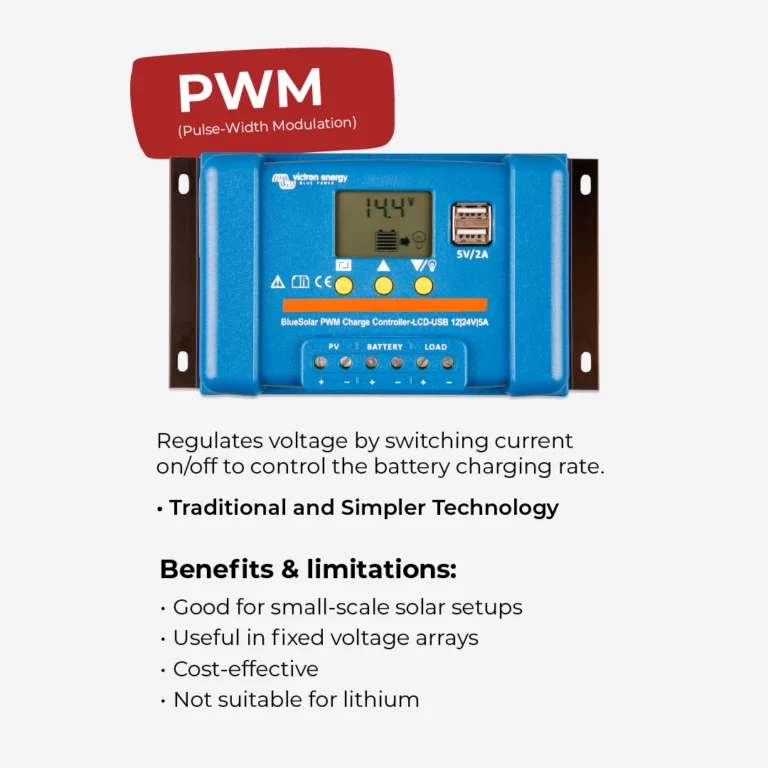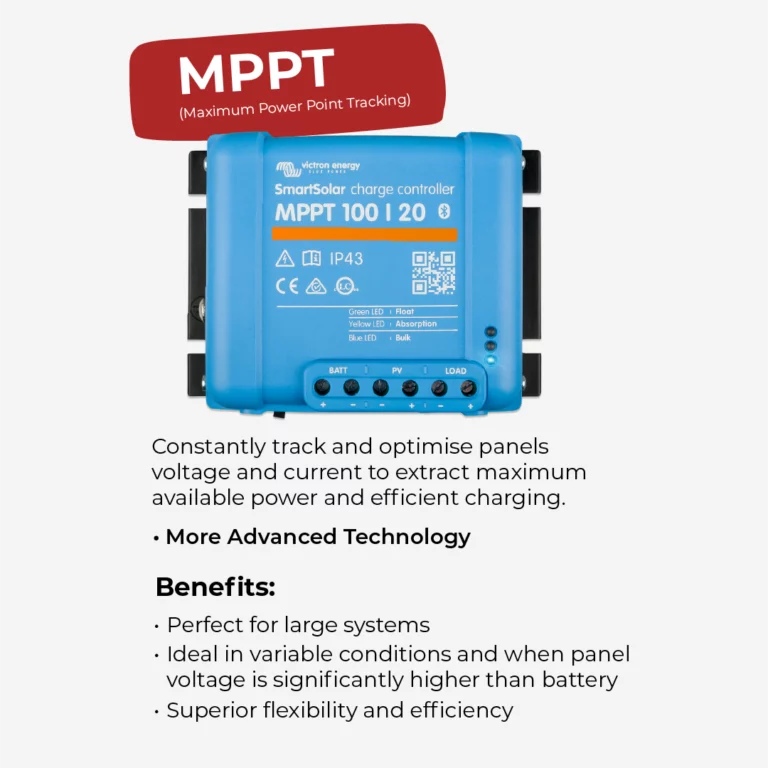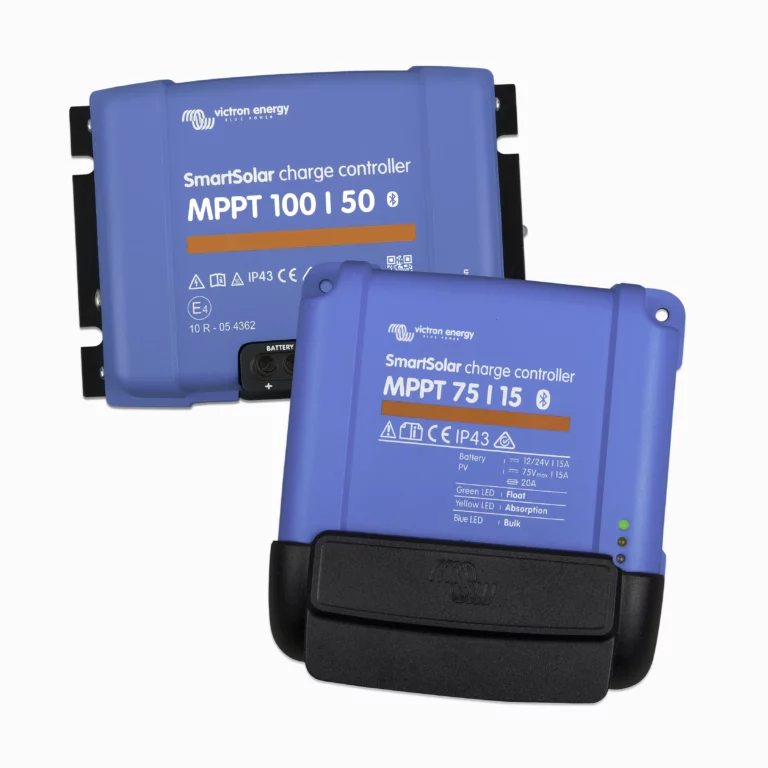Your cart is currently empty!
Which Charge Controller Should You Choose?




Which solar charge controller should you choose?
PWM (Pulse-Width Modulation) solar charge controllers are a traditional and simpler technology. They regulate the voltage from the solar panels to the battery by rapidly switching the connection on and off, controlling the battery’s charging rate. Awesome for small-scale solar setups and fixed voltage arrays (panel votlage close to battery). Cost-effective solution but not suitable to charge lithium batteries.
MPPT (Maximum Power Point Tracking) solar charge controllers are more advanced. They constantly track and optimize the solar panel’s voltage and current to extract the maximum available power and efficiently charge the battery. Perfect for larger systems, variable conditions and panel strings with significantly higher than voltage the battery.
The choice between PWM and MPPT solar charge controllers largely depends on the specific requirements of your solar power system. If you have a small, simple setup with fixed voltage solar panels, a PWM controller can provide a cost-effective solution. However, for larger systems with varying conditions and high-voltage panels, an MPPT controller offers superior efficiency and flexibility.
Shop Solar Controllers

Regulators
MPPT and PWM charge controllers for regulating amperage and voltage on solar systems including brands such as Victron bluesolar and smartsolar, Epever and Amptron.
Leave a Reply
You must be logged in to post a comment.